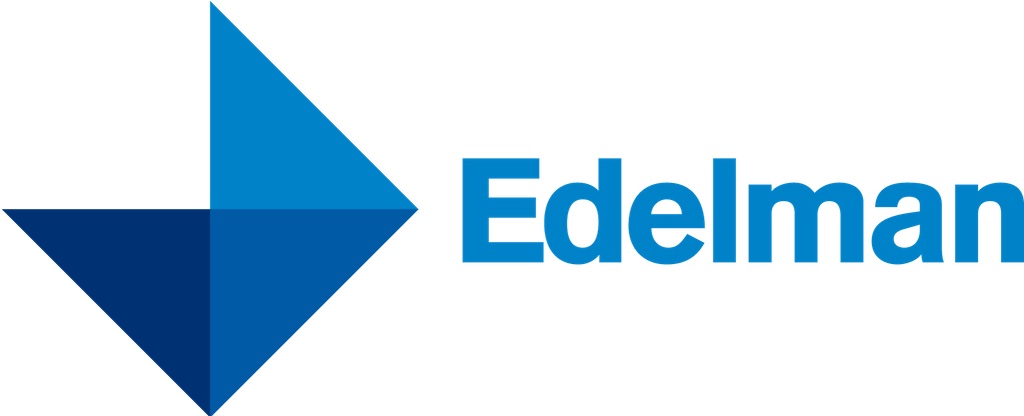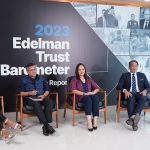Edelman Malaysia today released the findings of their annual Trust Barometer highlighting rising levels of trust amongst businesses and NGOs, with government and media experiencing a dip in trust. The barometer also revealed that Malaysia, along with the rest of the world is experiencing a cycle of distrust.
Malaysians’ Trust in Institutions
The 2022 Edelman Trust Barometer saw Malaysia achieve an average Trust Index Score of 66 points, on par with its 2021 score. This positions Malaysia at 6th position on the Global Trust Index, raising its rank by one spot from 2021.
While all Malaysian institutions fall under the trusted region (above 59 points), government and media are nearing the neutral threshold, sitting at 62 and 60 points respectively. Both institutions experienced a decrease in trust compared to 2021. Trust in government recorded a 3-point decrease, while trust in media dropped by 2 points. Business and NGOs are currently seen as the most trusted institutions in Malaysia. Trust in business increased by 2 points to 71%, NGOs saw a 1-point increase to 70%.
The Cycle of Distrust
Distrust is now the default for citizens around the globe. In Malaysia, 6 in 10 have said that their default tendency is to distrust something until they have solid proof that it is trustworthy. In line with the global trend, 64% of Malaysians think the country is polarised to the point where people are unable to have constructive and civil debate with their peers who hold opposing views.
When asked if any of the core institutions were seen either as a unifying force or a divisive one, Malaysians viewed government as a divisive force with a 1-point difference. Nearly 43% of Malaysians see the government as a dividing force in society, compared to 42% of Malaysians who view government as a unifying force.
Distrust Fueling Fears
Societal fears are also on the rise in Malaysia, with job loss and climate change being cited as the top two societal fears, increasing by 5 points to 94% and 81% respectively. Malaysians also worry about their freedoms as citizens being eroded recording a 9-point increase compared to 2021 at 80%, while fears of experiencing prejudice and racism also increased up by 11 points to 76%.
“Democracies which previously prided themselves on values such as freedom of speech and expression are now faced with an uphill task of balancing fundamental human rights against societal problems,” said Christopher de Cruz, Group Director of Edelman Malaysia. “One example of a persistent problem is that of fake news which has remained a serious concern for a decade now, with no clear solution in sight” he added.
Malaysians are highly concerned that fake news and false information are being used as a weapon against them. 83% of Malaysians are concerned about fake news, as shown by a marked 7-point increase from last year’s findings. Malaysia now ranks as the second highest alongside Indonesia as among those most concerned with fake news.

Businesses Expected to Lead Policy
This year’s barometer data highlights the evolving role of businesses and NGOs, with both being viewed as competent and ethical compared to media and government. 30% of Malaysians say that businesses are highly effective agents of positive change while 42% of Malaysians said the same for NGOs.
CEOs are expected to be the face of change with 78% of Malaysians saying that CEOs should be personally visible when discussing public policy with external stakeholders or the work their company has done to benefit society. Malaysians expect CEOs to help inform and shape conversations and policy debates on a range of issues ranging from jobs/economy, wage inequality, technology to automation, but not on politics.
However, Malaysians responded that businesses were not doing enough on addressing societal issues such as economic inequality, systemic injustice, climate change, and more. The public want more, not less business engagement on these topics, with a more than 20-point gap on every societal issue questioned.
Breaking The Cycle of Distrust
Restoring trust in Malaysia’s institutions, as well as continuing to improve the trust within leading institutions like businesses and NGOs are key to societal stability. Businesses’ societal role is here to stay as Malaysians want more business leadership, not less.
de Cruz added, “As Malaysians want more leadership from businesses, not less, we need to appreciate the fact that businesses are no longer just profit-driven organisations and their societal role is here to stay. They must accept the responsibility of filling the void left by the government. Simply leading a business is not enough, there is an expectation for CEOs and other business leaders to speak on issues that impact the communities they operate in.”
All institutions need to demonstrate tangible progress to restore the belief in society’s ability to build a better future. Malaysians will expect leaders to focus on long-term thinking with an emphasis on providing solutions over divisiveness. Lastly, with fake news being high on Malaysian’s concerns, every institution must provide clear, consistent and fact-based information to break the cycle of distrust.
Other Findings
- Malaysians continue to trust their employer above all other institutions, at 79% compared to 71% for businesses, 70% for NGOs, 62% government, and 60% media
- Trust in search engines and traditional media is also on the rise as trusted source of information with a 4-point and 9-point increase to 68% and 66% respectively.
- Data shows a continued trust gap between high income and low income groups – a 13-point gap in trust. But good information can help close that societal divide. Trust in low-income groups improves by 10% when they are well-informed, while trust in high income groups decreases by 7 points when they are not well-informed. Those who are well informed seek out quality and trustworthy information; they often consult multiple news sources, will view conflicting viewpoint sources, and will vet and fact check any information they come across.
MARKETING Magazine is not responsible for the content of external sites.
After 20 years of evolving technology, shifting market trends, and adapting to changing consumer behaviour, the media landscape has nearly reached saturation.
We’ve optimised to the fullest, providing advertisers with abundant choices across technology, platforms, data-driven marketing, CTV, OTT, DOOH, influencer marketing, retail, etc.
Media specialists have diversified, but with more options comes the challenge of maintaining income growth. The industry is expanding, but revenue isn’t keeping pace.
Now, we’re at a TURNING POINT: time to explore and harness new sustainable revenue streams. While GroupM forecasts a 7.8% global ad revenue growth in 2024, challenges like antitrust regulation, AI and copyright issues, and platform bans persist.
Collaboration is key: partnerships that thrive on synergy, shared values, and aligned goals are becoming increasingly essential.
Hence, the Malaysian Media Conference, in its 20th year, has assembled the partners and players under one roof on October 25 for a day of learning, sharing, and exploring.
REGISTER NOW










